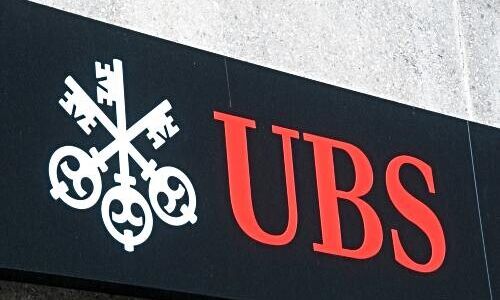Switzerland's largest bank recorded a loss in the third quarter as the cost of rescuing Credit Suisse continued to weigh on results even though the new combined wealth management business posted a stellar quarter.
The first signs of the strength of the future integrated wealth management franchise of the integrated UBS and Credit Suisse wealth management business may have come to light in the third quarter, with the business reporting net new money of $22 billion, according to quarterly figures issued on Tuesday.
UBS indicated that this was due to its ability to win back client assets at the same time that it managed to attract new clients.
At the same time, it was the first time since the first quarter of 2022 that the Credit Suisse wealth management business recorded positive net new money results. The business also saw revenues grow 21 percent to $5.8 billion, most of which was due to consolidating Switzerland's second-largest bank.
Quarterly Loss
The group as a whole, however, continued to see the impact of restructuring costs from the government-prompted rescue earlier this year.
It reported a net loss attributable to shareholders of $785 million, down from a profit of $1.7 billion a year earlier (the second quarter included the accounting impact of the acquisition and net profit attributable to shareholders was $29 billion).
Besides wealth management, the personal and corporate banking business also saw revenues more than double (up 156 percent) as it benefited from consolidating the Credit Suisse business. Asset management income was up by 46 percent although the investment bank only saw them increasing 6 percent.
Outlook
UBS group chief executive officer Sergio Ermotti indicated that the group is positive about the future as it continues to build a stronger and safer bank.
Despite that, UBS indicated that uncertainties remain with regard to interest rate levels even though a number of central banks worldwide have paused further rate increases. This, combined with geopolitical tensions continues «to cloud» the macroeconomic outlook.
«This, in addition to normal seasonality may affect wealth management and institutional clients' transactional activity in the fourth quarter of 2023. We also expect clients to continue to shift cash holdings from deposits into higher-yielding products» UBS stated.
Balance Sheet Stability
UBS also reported that it managed an accelerated build-down of non-core assets and risk-weighted assets in the quarter, resulting in the release of around $1 billion in CET1 capital. It managed to maintain a CET1 capital ratio of 14.4 percent, with the group possessing a total loss-absorbing capacity of $195 billion.
Overall, expenses fell 5 percent to $9.6 billion on the reduction in non-core and legacy assets and as it continued to restructure Credit Suisse's investment bank and remove any duplication of activities in the combined business.
This resulted in a headcount cut of 4,000 in the third quarter, with staffing levels down 13,000 when compared with their levels on a pro-forma basis at the end of 2022.
































